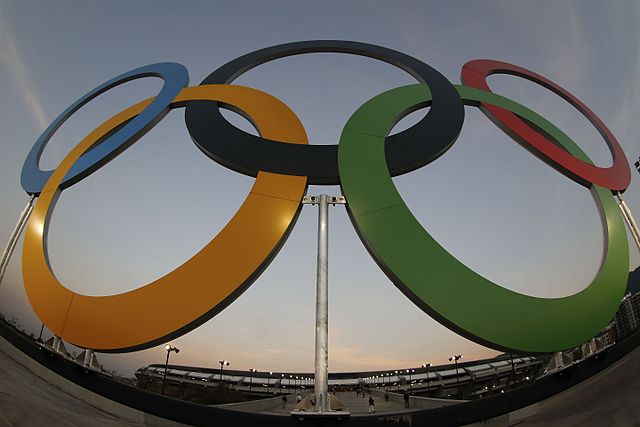
I rarely watch sports, but I make an exception for the Olympics. I can’t deny that it’s thrilling to see the world’s top athletes in one place, showing off the greatest feats of strength, speed and grace that human beings are capable of. And I still believe the international cooperation that makes the games possible is a triumph of diplomacy and a good sign for human civilization.
But it’s getting harder and harder to ignore the problems threatening to overshadow the competition. Every Olympics has protests, cost overruns and last-minute scrambles, but it seems like everything has come to a head this year with Rio’s well-publicized woes.
Guanabara Bay, where the sailing and windsurfing events will be held, is filthy with trash and untreated raw sewage. The city’s promise to clean it up in time for the games went unfulfilled, and one of the public servants working to fix the problem was murdered after apparently refusing to take bribes, the case still unsolved.
The city built a colorful wall along the road out of the airport to hide the poor, sprawling Maré favela from athletes and dignitaries. Other communities were forcibly displaced to make way for Olympic development. Police and other public servants who’ve been underpaid for months picketed the airport with signs reading “Welcome to Hell“.
And what will come after the games are over? Olympic venues in previous host cities almost inevitably become useless eyesores. Most have fallen into ruin and are choked with weeds and graffiti.
Whatever you think about the spectacle and pageantry of the games, it scarcely seems worthwhile to have a different city build a world-class sports complex from scratch every two years. This is an enormous cost, even without considering the IOC’s princely list of demands, and it’s doubly wasteful since most of them never get used again. Like publicly financed stadiums in general, it’s an extravagance imposed on the many for the benefit of a few.
As the expense and waste of the Olympics become more widely known, we’re seeing more democratic rejection of the whole mess. Oslo, Munich, Krakow and Stockholm all dropped their bids for the 2022 Winter Olympics due to public discontent, leaving only two cities in authoritarian states, Almaty in Kazakhstan and the final winner, Beijing. There have been other withdrawals for the 2024 games.
It’s possible this will become a trend, and future Olympics will be a prestige project for autocratic rulers who don’t care about cost overruns and can use them as a handy excuse for skimming and graft. That’s just what happened at the last Winter Olympics in Sochi, a $51 billion boondoggle that mostly benefited Vladimir Putin’s cronies.
It doesn’t have to be this way. We could have all the pomp and athleticism at a fraction of the price. What if we had a fixed list of host cities that the Olympics rotate among? We could reuse infrastructure rather than building it from scratch each time. Or, rather than making one city shoulder the entire burden, why not have Olympic continents or Olympic regions, with different cities each hosting a few of the facilities?
Maybe none of this is the solution, but something has to change. If nothing does, the Olympics risk squandering the reputation they’ve worked to build. The games could end up being viewed not as a celebration of sportsmanship, but as a locust swarm of the powerful, trampling the poor and then moving on to the next city. That would be a shameful waste of an institution that still can, and by all rights should, be a way of bringing the world together.
Image credit: Agência Brasil, released under CC BY 3.0 BR license